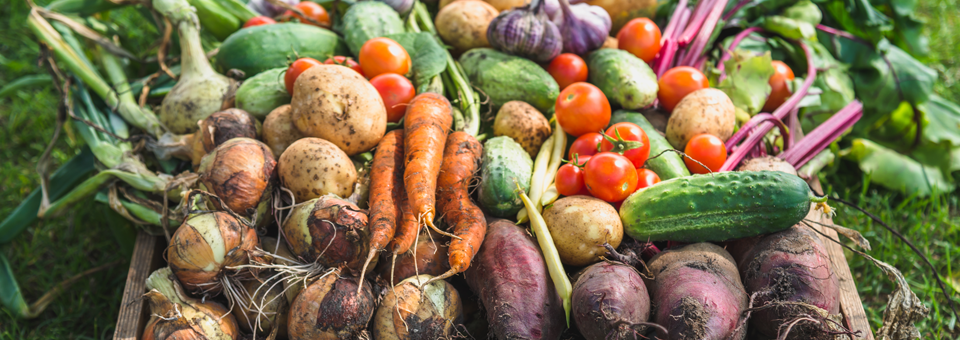The government declared war on fat almost 50 years ago. And as a result, we got slower, sicker, and fatter.
In fact, the results of this big fat lie “led to some pretty disastrous consequences…that caused Americans to get fatter.”
Those are the words of one of the most famous nutritionists in the world.
Dr. Walter Willett, Chair of the Department of Nutrition at the Harvard T.H. Chan School of Public Health, was one of the first mainstream physicians to admit that the campaign to eliminate fat in the diet was a big mistake.
But lately, he’s shifted gears. And today, he’s declared war on meat.
I couldn’t disagree more…
We come from hunter-gatherers who evolved over millennia to thrive on meat. We have canine fangs like dogs and wolves. These teeth are meant to rip and tear flesh from animals.
Being a vegetarian is a modern fad. It was the brainchild of Reverend Sylvester Graham. He believed that all of America’s moral failings could be traced back to an “unholy diet.” So he created a strict meat-free meal plan that would “cure” the country of its “immoral urger.” He preached a gospel of fruits, vegetables, and whole-wheat crackers that would eventually bear his name.
But Graham and his followers got it wrong. Big time. They didn’t understand that humans are born meat eaters.
And that being vegetarian takes a real toll on your health.
When vegetarians give up meat, they force themselves to get the bulk of their calories from wheat or other grain products. So they wind up eating more bread, pasta, cereals, and other processed foods.
In other words, they eat a lot of junk.
Sound familiar? It’s the same thing that happened with the war on fat.
For more than 20 years, I’ve seen firsthand the
health problems of vegetarians in my practice. I’ve found that vegetarians:- Have low energy and feel frail
- Get sick more often and age faster
- Have poor digestion and weaker bones
- Can’t produce growth hormones, testosterone, and thyroid hormone
- Have low sperm counts and more fertility problems
And despite what Dr. Walter Willett declares, vegetarians don’t live longer…
An important study in the American Journal of Clinical Nutrition looked at data from two studies of more than 60,000 people in the U.K. It found no difference in mortality rates between vegetarians and meat eaters.1
And despite what you hear from the mainstream media, studies show vegetarian diets don’t lower the risk of heart disease2 or cancer.3
But a plant-only vegan diet does cause genetic mutations that increase the risks for both heart disease and cancer.4
The latest research shows that eating a plant-based diet also makes you depressed,5 increases your risk of broken bones,6 and decreases phospholipids.7 Phospholipids are vital for a healthy brain.
You see when you don’t eat meat, it’s impossible to get many of the essential nutrients you need every day.
If you were – or still are – eating a plant-based diet, you’re missing out on a number of key nutrients. Here’s how to get a few of them back:
- Supplement with B12. This vitamin, so vital to humans, is only found in meat. While some vegetarians claim that B12 can be found in algae, tempeh (a soy product sometimes used as a meat substitute), or even brewer’s yeast, these are false assumptions. I recommend at least 100 mcg per day. But I advise many of my patients to take as much as 2,000 mcg, especially if they are vegetarians.
- Replenish your zinc. Most vegetarians have a zinc deficiency. This is a problem. You can’t have a well-functioning immune system without this antioxidant. It also reduces your risk of metabolic syndrome, age-related macular degeneration, osteoporosis, and memory loss. I recommend taking 30 mg a day.
- CoQ10: CoQ10 is only found in animal products. You’ll find high concentrations of this heart- and brain-critical nutrient in organ meats. But you’ll also get it from the meat itself. CoQ10 supplies your cells with ATP, the energy required by every cell in your body for metabolism, energy production, and life itself. I recommend at least 50 mg of ubiquinol CoQ10 every day. This form is eight times more absorbable than conventional CoQ10.
To Your Good Health,
![]()
Al Sears, MD, CNS
References:
1. Appleby P, et al. “Mortality in vegetarians and comparable nonvegetarians in the United Kingdom.” Am J Clin Nutr. 2016 Jan;103(1):218-30.
2. Kaiser J, et al. “A systematic review of the association between vegan diets and risk of cardiovascular disease.” J Nutr. 2021 Jun 1;151(6):1539-1552.
3. “Does being a vegetarian lower your risk of cancer?” https://www.wcrf.org. 2020. Accessed on May 24, 2023.
4. Caspermeyer J. “Are we what we eat? Evidence of a vegetarian diet permanently shaping the human genome to change individual risk of cancer and heart disease.” Mol Biol Evol. 2016 Jul;33(7):1887-8.
5. Kohl I, et al. “Association between meatless diet and depressive episodes: A cross-sectional analysis of baseline data from the longitudinal study of adult health.” J Affect Disord. 2023 Jan 1;320:48-56.
6. Webster J, et al. “Risk of hip fracture in meat-eaters, pescatarians, and vegetarians: results from the UK Women’s Cohort Study .” BMC Med. 2022 Aug 11;20(1):275.
7. Menzel J, et al. “Dietary and plasma phospholipid profiles in vegans and omnivores—results from the RBVD study.” Nutrients. 2022 Jul; 14(14):2900.

